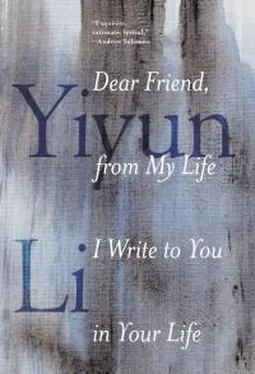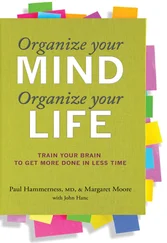Why then write to trap oneself? Innocence—the kind Bowen describes in The Death of the Heart— is the answer I can provide:
Innocence so constantly finds itself in a false position that inwardly innocent people learn to be disingenuous. Finding no language in which to speak in their own terms, they resign themselves to being translated imperfectly. They exist alone; when they try to enter into relations they compromise falsifyingly—through anxiety, through desire to impart and to feel warmth. The system of our affections is too corrupt for them. They are bound to blunder, then to be told they cheat. In love, the sweetness and violence they have to offer involves a thousand betrayals for the less innocent. Incurable strangers to the world, they never cease to exact a heroic happiness. Their singleness, their ruthlessness, their one continuous wish makes them bound to be cruel, and to suffer cruelty.
It seems wise, in life, to shun the innocent. But in truth innocence grows on one. I have been thinking about Sue and Portia. I have been thinking about my mother, too. It is easier to live among characters—others’ and my own. Even those real people whose lives passed become characters in reading. They would never detect my innocence. And it is out of innocence that I write.
I left London without a decision about the novel. When I returned home I looked up an earlier letter from Trevor, with a query about another novel. How is the novel? One asks that as one does about an ill person, and a novel that’s not yet finished is rather like that. You reach the end and the thing is either dead or in much better shape. The dead should be left in peace.
To Speak Is to Blunder but I Venture
In a dream the other night I was back in Beijing, at the entrance of our apartment complex, where a public telephone, a black rotary, had once been guarded by the old women from the neighborhood association. They used to listen without hiding their disdain or curiosity while I was on the phone with friends; when I finished, they would complain about the length of the conversation before logging it into their book and calculating the charge. In those days I gathered many chores before I went to use the telephone lest my parents noticed my extended absence. My allowance—which was what I could scrimp and save from my lunch money—was spent on phone calls and stamps and envelopes. Like a Victorian character I checked our mail before my parents did and intercepted letters meant for me. To think that eager person—not wanting to miss a connection with the world—would grow up into the recluse I prefer to think of myself as today: there must be a part of everyone’s youth that later one avoids looking at too closely.
In my dream I asked for the phone. Two women came out of the office. I recognized them. In real life they are both gone. No, they said; the service is no longer offered because everyone has a cellphone these days. There was nothing remarkable about the dream—a melancholy visit to the past is beyond one’s control—but for the fact that the women spoke to me in English.
When I started writing, my husband asked if I understood the implication of my decision. What he meant were not the practical concerns, though there were plenty: the nebulous hope of getting published, the lack of a career certainty as had been laid out in science, the harsher immigration regulations. Many of my college classmates, as scientists, acquired their green cards under the category of national interest waiver. An artist is not of much importance to any nation’s interest.
My husband’s question was about language. Did I understand what it meant to renounce my mother tongue?
Nabokov once answered a question he must have been tired of being asked: “My private tragedy, which cannot, indeed should not, be anybody’s concern, is that I had to abandon my natural language.” That something is called a tragedy, however, means it is no longer personal. One weeps out of private pain, but only when the audience swarms in to claim understanding and empathy do they call it tragedy. One’s grief belongs to oneself; one’s tragedy, to others.
I feel a tinge of guilt when I imagine Nabokov’s woe. Like all intimacies, the intimacy between one and one’s mother tongue can demand more than one is willing to give, or what one is capable of giving. If I allow myself to be honest, I would borrow from Nabokov for a stronger and stranger statement. My private salvation, which cannot and should not be anybody’s concern, is that I disowned my native language.
For a while, when I was unwell, my dreams often went back to Beijing, standing on top of a building—one of those gray, Soviet-styled apartment buildings—or being lost on a bus running through an unfamiliar neighborhood. Waking up from these dreams, I would list in my journal memories that did not appear in my dream: a swallow nest underneath a balcony, the barbed wire on the rooftop, the garden where old people sat and exchanged gossip, the post bins at street corners, round, green, covered by dust, with handwritten collection times behind a square window of half-opaque plastic.
Yet I have never dreamed about Iowa City, where I first landed in America. When asked about my initial impression of the place, I cannot excavate anything from memory to form a meaningful answer. During a recent trip there I visited the neighborhood I used to walk past every day. The one-story houses, which were painted in pleasantly muted colors, with gardens in the front enclosed by white picket fences, had not changed. I realized that I had never described them to others or to myself in Chinese, and by the time English was established as my language they had become everyday mundanities. What happened during my transition from one language to another did not become memory.
—
TO OWN—A HOUSE, a life on a quiet street, a language, a dream—is to allow oneself to be owned, too. The moment the present slips into the past owning starts to be replaced by disowning. Why wait for the inevitable?
People often ask about my decision to write in English. The switch from one language to another feels natural to me, I reply, though that does not say much, just as one can hardly give a convincing explanation why someone’s hair turns gray on this day but not on the other, or why some birds fly south when the temperature drops. But these are inane analogies, used as excuses because I do not want to touch the heart of the matter. Yes, there is something unnatural, which I have refused to accept. Not that I write in a second language—there are always Nabokov and Conrad as references, and many of my contemporaries as well; nor that I impulsively gave up a reliable career for writing. It’s the absoluteness of the abandonment—with such determination that it is a kind of suicide.
The tragedy of Nabokov’s loss is that his misfortune was easily explained by public history—his story became other people’s possession. My decision to write in English has also been explained as a flight from my country’s history. But unlike Nabokov, who had been a Russian writer, I never wrote in Chinese. Still, one has little control over how one’s work is received, and one cannot avoid having a private decision, once seen through a public prism, become a metaphor. Once a poet of Eastern European origin and I—we both have lived in America for years, and both write in English—were asked to read our work in our native languages at a gala. But I don’t write in Chinese, I explained, and the organizer apologized for her misunderstanding. I offered to read Li Po or Du Fu or any of the ancient poets I grew up memorizing, but instead it was arranged for me to read the poems of a political prisoner.
A metaphor’s desire to transcend diminishes any human story; its ambition to illuminate blinds those who create metaphors. In my distrust of metaphors I feel a kinship to George Eliot: “We all of us, grave or light, get our thoughts entangled in metaphors, and act fatally on the strength of them.” This, I know, is what my husband was questioning years ago. But my abandonment of my first language is personal, so deeply personal that I resist any interpretation—political or historical or ethnographical.
Читать дальше












